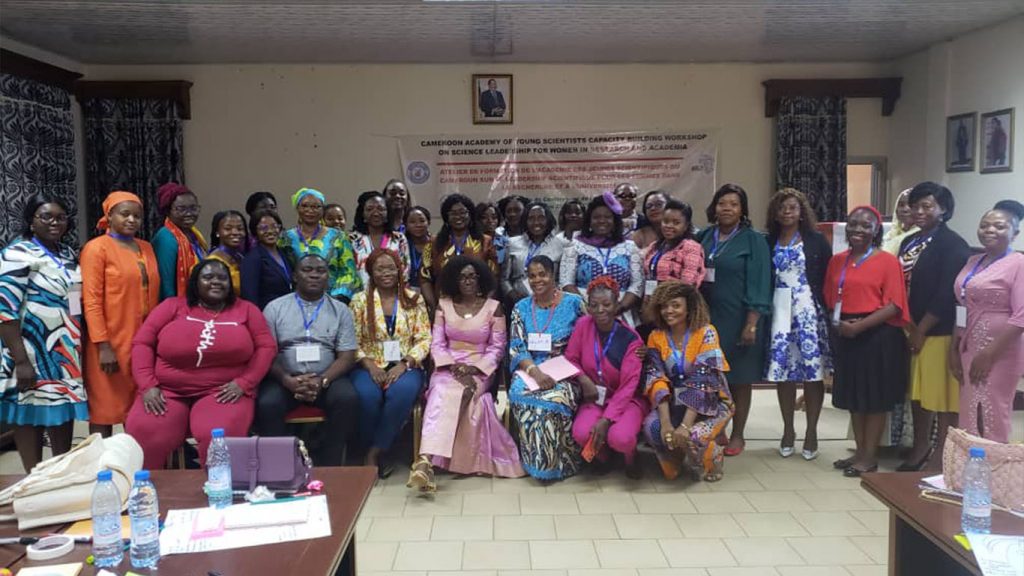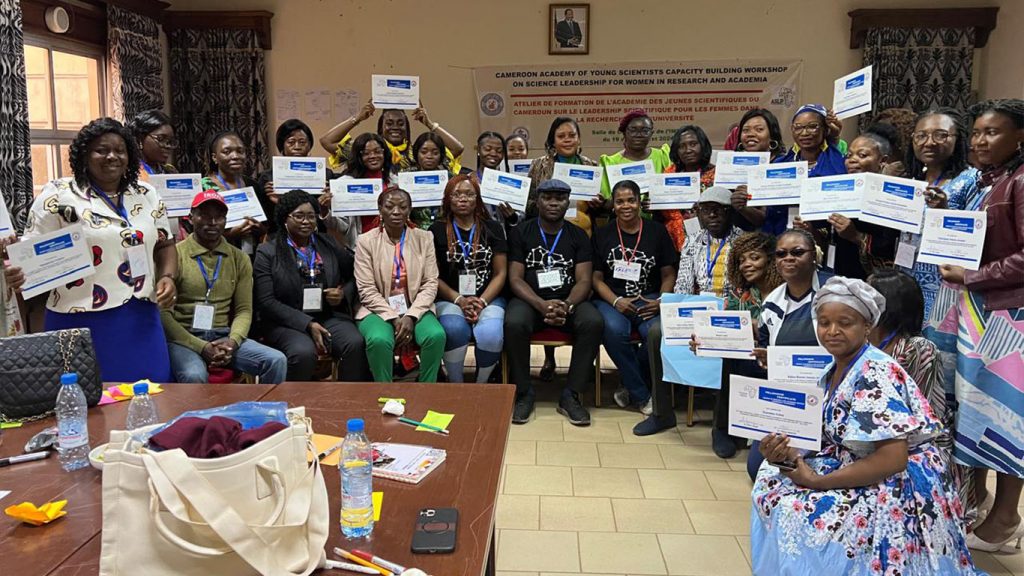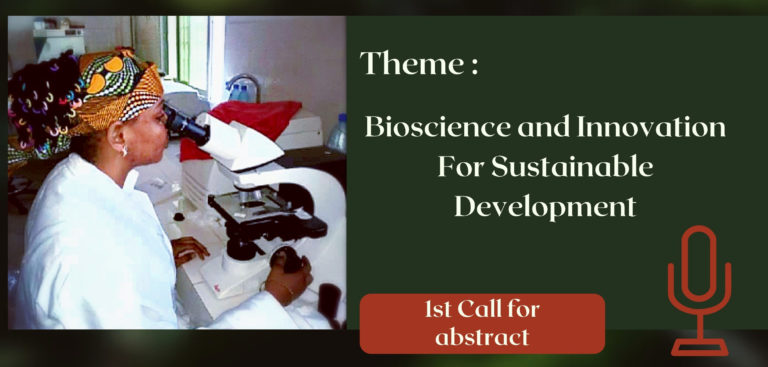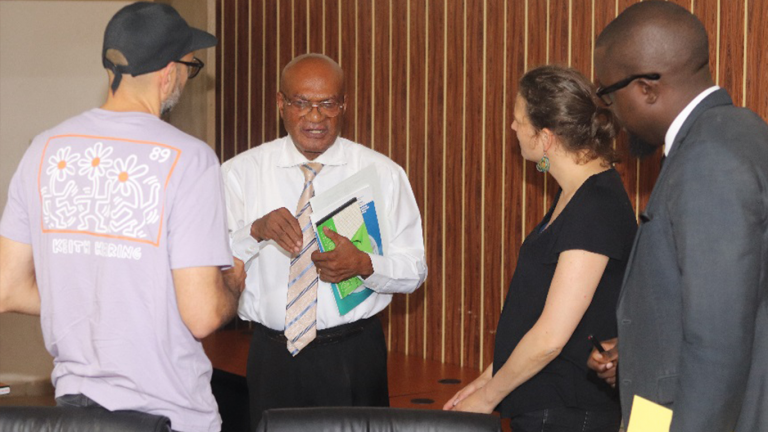IMPM hosts the Women in Research and Academia Science Leadership Workshop 19th-20th July, 2024
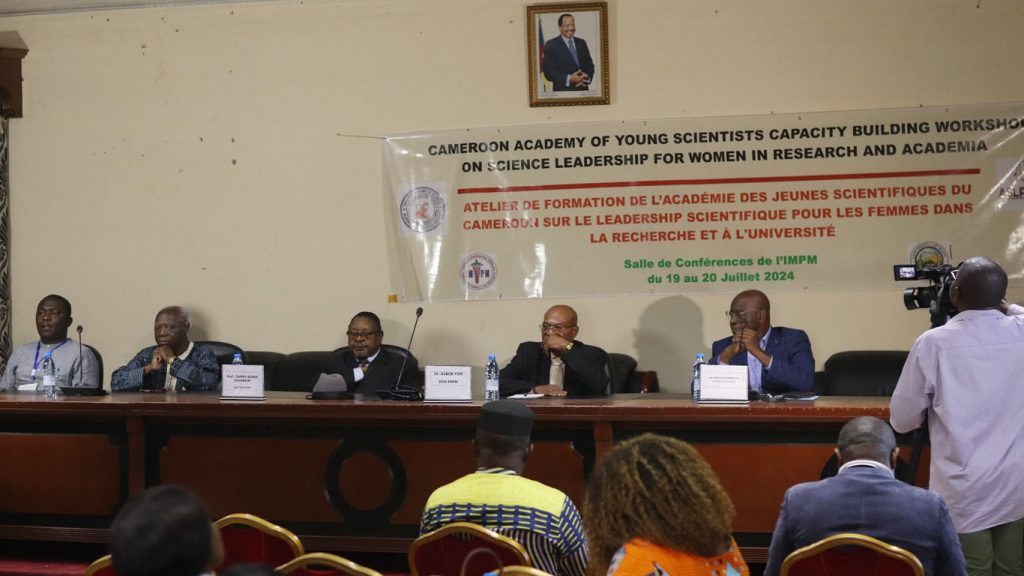
Organisers / Facilitators: Dr Valerie Makoge, Dr Fritz Lyonga, Dr Nzweundji Justine Germo
Mentors: Dr Loveline Nsahlai, Dr Constantine Kouankem, Dr Dongang Nana Rodrigue
ASLP mentors: Dr Lydia Mosi, Dr Priscilla Mante
Background:
The challenges faced by women researchers and women in the academic fields in Sub-Saharan Africa in general and Cameroon specifically is particular. Issues such as gender biases, inequality, stereotypes and lack of role models inhibit the growth and development of women. A lack of career development opportunities, the inability to balance work and life contribute to stalling women’s career development. There is a need for a programme targeting women in particular and meeting specific needs of women in research and academia.
The Women in Research and Academia leadership programme (WIRASLP) was organised to meets needs of women with interest in developing research skills necessary to navigate the challenges faced in the climb of their research or academic careers.
The aim of this programme was to expose women to Africa Science Leadership Programme leadership tools, address women specific challenges in leadership and ways to navigate those challenges, assist women in creating their specific professional/personal development objectives, give support through expert guidance, skills development, team building sessions, mentorship and peer feedback.
The workshop was a collaborative effort of the following bodies: the African Science Leadership Program (ASLP), the Cameroon Academy of Young Scientists (CAYS), the Institute of Medical Research and Medicinal Plants Studies (IMPM) and the University of Buea (UB). It was dubbed “Women in Research and Academia Science Leadership Program (WIRASLP)” and took place in the IMPM conference hall in Yaoundé, Cameroon on the 19th -20th July, 2024. .
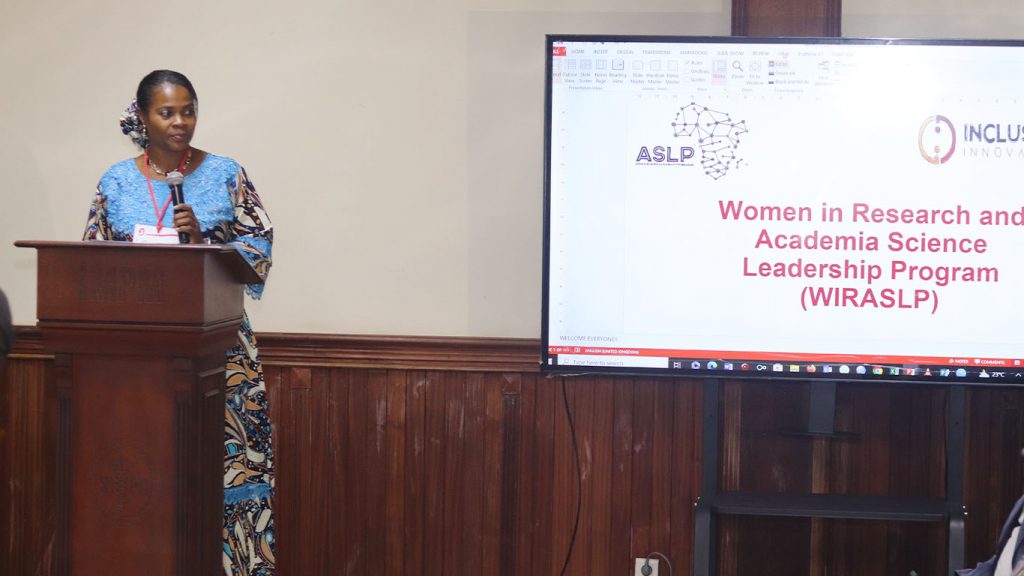
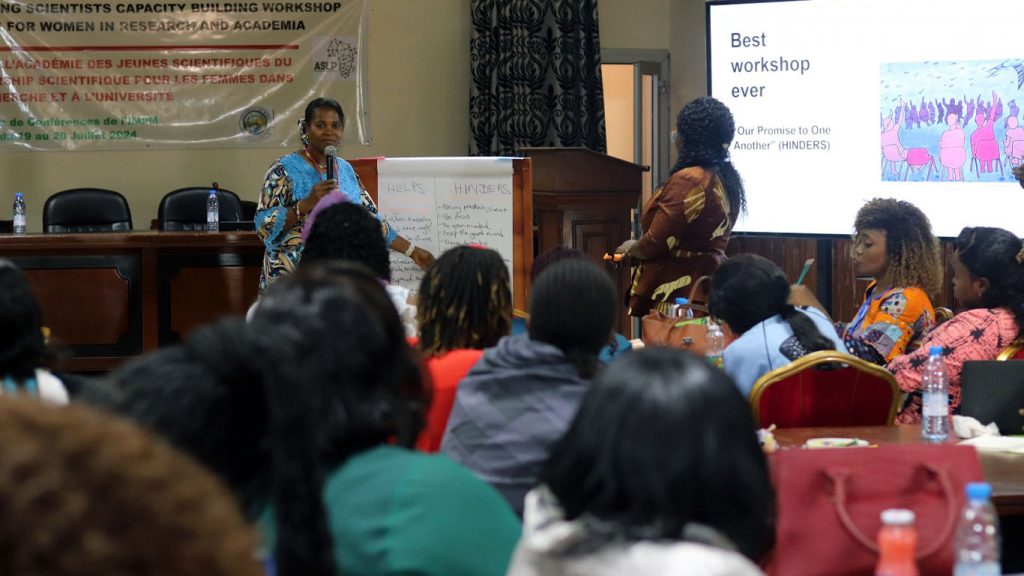
Official Opening:
During this official opening, Dr Valerie Makoge, spoke on behalf of the organisers, explaining the reason for having this particular workshop and the objectives and expectations for the two days of the workshop. Her talk, was followed by a talks from executive secretary of the Cameroon Academy of Sciences, Prof Xazier Etoa, The Deputy Director General of IMPM, Dr Tom Agbor and finally the President of CAS, Prof Sammy Beban Chumbow who opened the workshop outlining the importance of such training for women. A family photo bringing together the officials, the organizing committee and the participants marked the end of this opening ceremony.
Workshop Activities
After welcoming the participants, the president of the organizing committee, Dr. Valerie Makoge introduced the mentors and facilitators of the workshop namely: Dr. Fritz Lyonga, Dr. Nzweundji Justine, Dr. Constantine Kouankem, Dr. Loveline Nsahlai and Dr. Nana Rodrigue. Subsequently, she guided the workshop participants to come up with helps and hinders to having the best workshop ever and the list of helps became a contract of facilitators with participants to guide the interactions hence.
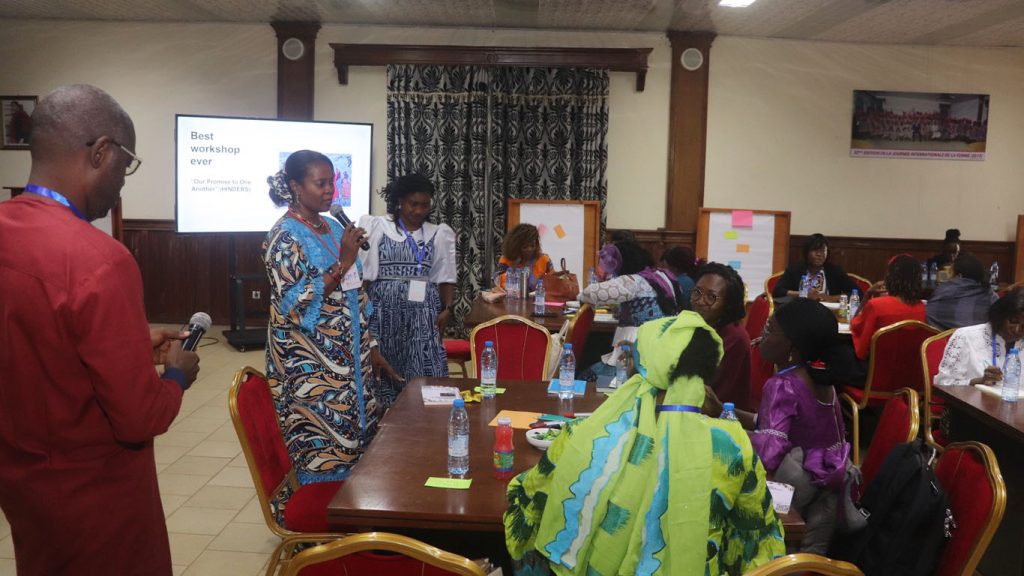
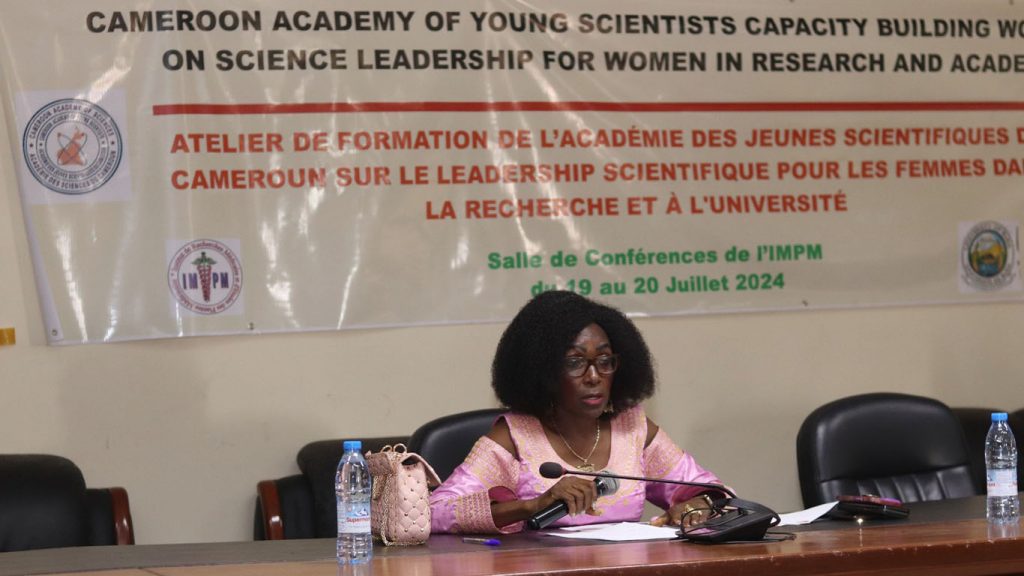
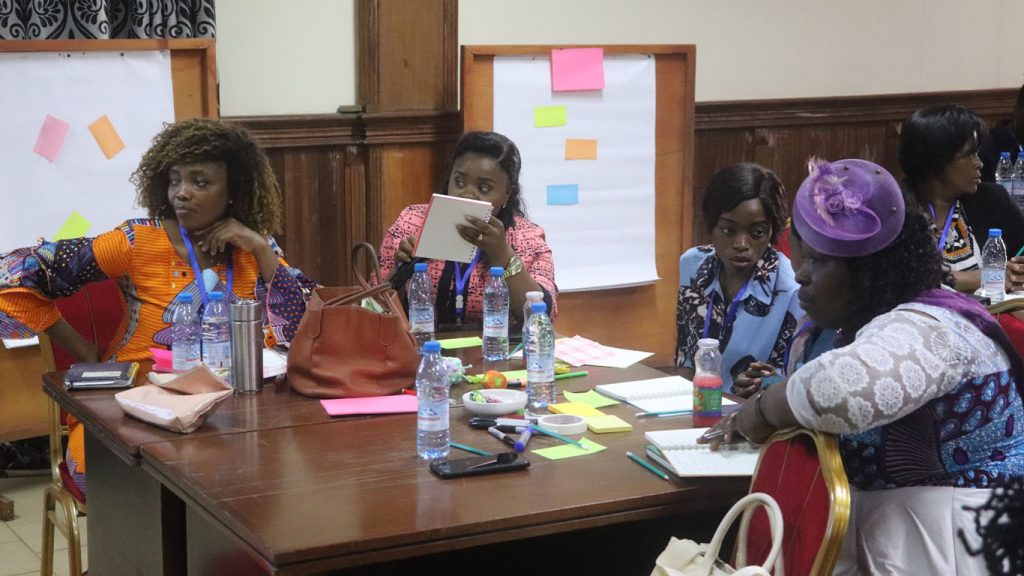
The following tools were used during the two days of the workshop:
Generous listening
During this activity each pa participant practiced each how to be a speaker, a scribe and a listener.
Reframing
In this session, participants were trained on the benefits of consciously changing the way they understand and interpret situations. Participants were trained on how to always choose alternative perspectives that can lead to a more positive and empowering understanding of challenges.
Speed Networking
Participants were exposed to a method designed to meet many people in a short time period. They were also challenged to introduce themselves in ways beyond the initial thoughts of who think they are.
Provocation
The provocateur, Professor Uphie Chinje Florence gave an inspiring presentation on the theme “Breaking Barriers Building futures with Female Science Leaders”. During this presentation, Professor Uphie Chinje outlined the different challenges of a female scientist as a leader and proposed some solutions to overcome these difficulties. She drew inspiration from her personal leadership journey to advise the participants who felt edified. This activity ended by a question-answer session.
Re-thinking how we think/Noting Insights: “How Might We (HMW)” questions
Participants were introduced to the concept of reframing challenges in the format of “How Might We (HMW)”. This method reframes and opens up problem statements for effective, focused, and innovative brainstorming sessions to help solve challenges. The goal was to spark innovative thinking and inspire a range of potential solutions.
Collective Leadership Model
Participants were introduced to the Collective Leadership Model and its dimensions and invited in groups to reflect on the different dimensions. They were also introduced to the Spidergraph which they used to identify they comfort and learning zones.
This first Day’s activities were about collecting ideas in what is known as ideation and clarification phases
Day 2:
This started with a reflection of Day 1’s activities. The talking stick concept was introduced to the participants by Dr Valerie Makoge.
On this second, participants were exposed to other tools to converge ideas which they had been generating during Day 1.
4Is Tool: Interest, Impact, Imagination, Influence
This tool to converge ideas was brought to the participants by Dr Justine Germo NZWEUNDJI. Four (4) boards were prepared (Interest, Impact, Imagination, and Influence), and participants invited to identify ideas of Interest from which they identified those ideas wihich could have impact and which could stretch their imagination and finally those they had influence to make it happen.
Ten post-it notes
This phase was conducted by Prof Tonjock Rosemary Kinge who was invited to be the second provocateur of the workshop. She presented her leadership journey on ten post-it notes. This session was interactive and inspiring.
The PPC/O tool
Participants were exposed to a feedback tool known as the PPCO tool wherein: P =Pluses, P =Potentials, C =Concerns and O =Overcomes
My best life
This final exercise was conducted by Justine Germo NZWEUNDJI and it encourages participants to develop a vision of their future.
Conclusion
The two day workshop ended with a feedback session. Dr Valerie Makoge firstly gave a recap of all the tools and activities that had been used and carried out respectively during the two days of workshop. She then proceeded to run a PPCO of the two day workshop.
Participants were invited to give the pluses of the workshop as well as the potentials, Concerns and Overcomes. Their feedbacks were awesome and they wished the number of days allocated for the workshop should be increased during future workshops.
